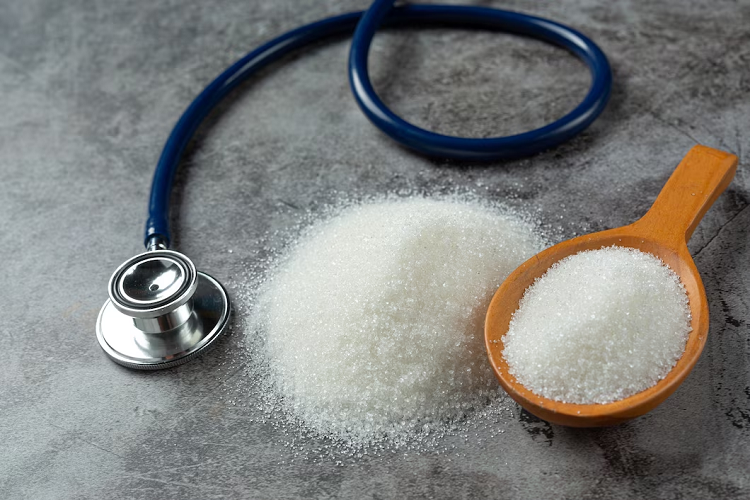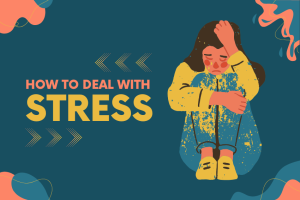The compound referenced as salt or known scientifically as sodium chloride, is a mineral that is vital in our body. However, excessive intake of salt is also dangerous and it causes high blood pressure, heart disease and stroke. Through this article, the effects of salt on health, common diseases associated with high salt consumption, established daily permissible salt intake ratios as well as ways of minimizing salt intake will be presented.

The Impact of Salt on Health
An important element in our body that is salt has several functions in our body. It assists in the regulation of body fluid, plays a role in muscle contractions/of nerves impulses and much more. But a typical American takes about 3,400 milligrams of sodium daily, which is way beyond the daily recommended intake of about 2,300 milligrams. Taking salty foods for years will have detrimental effect on our body in the long run.
When we take too much sodium the body retains water in a bid to reduce the concentration of sodium in the bloodstream. This in turn increases blood volume or amount of blood pumped against the walls of arteries. This puts a lot of pressure on the cardiovascular system, as blood vessels and the heart are gradually injuring One can easily get hypertensive, have a heart attack, stroke or even get stomach cancer, have kidney disease, develop a condition where one gets kidney stones, have osteoporosis and even get a condition that causes ulcers in the stomach.
Many groups, consuming low levels of sodium, like the native people from the Brazilian Amazonia, the Yanomami people, never see their blood pressure or cardiovascular disease rising with age, as seen in the postindustrial populations. Randomized controlled trials have also shown that reduction of salt reduces BP in both treated and untreated hypertensive patients. Taken as a whole, the data supports the conclusion that high use of salt disturbs fluid equilibrium and raises blood pressure and thickening of the arterial walls and other deleterious effects.
Consuming High Salt and Health Complication
The diseases and conditions below have the strongest links to excess sodium intake:
- Hypertension: They stated that high salt consumption leads to increase in blood pressure which forms a risk factor for heart diseases. Limiting sodium intake is effective in decreasing BP in persons with and without prehypertension or hypertension.
- Heart Disease: Sodium has detrimental effects in the body, mainly raising blood pressure which in turn puts extra pressure on the heart. It can over time cause damage to the heart, heart failure, heart attack, and stroke.
- Stroke: Sodium makes blood pressure high and damages the arteries, and high levels lead to strokes and hence is the risk factor for strokes. Various research indicates that with increased salt consumption beyond 5 grams per day, the risk of stroke increases sharply.
- Stomach Cancer: There is evidence that supports high intake of salty and preserved foods which in return increase risk of stomach cancer. This is so the case with salt which has been shown to harm the lining of the stomach in the long run.
- Kidney Disease: Sodium overloading of the kidneys is a continuous insult that leads to functional and health deterioration with time. Consumption of large amounts of salt is associated with renal disease and kidney stone development.
- Osteoporosis: Intake of so many salts increase loss of calcium through urination; fewer salts are reabsorbed into the bloodstream. Finally, in the long run, these findings suggest that these old aged people have calcium excretion and possibly an elevated risk of fracture in later life.
- Ulcers: High dietary salt may predispose to the development of stomach ulcer through injuring the stomach lining and increasing synthesis of the acid.
Any additional sodium that a person takes in increases their chances of getting high blood pressure, cardiovascular complications, stroke, among others. Reducing on the intake of salt is one way of primarily reducing this risk.
Recommended Daily Salt Intake
Based on a review of evidence tying sodium intake to disease risk, expert groups have issued upper limits for how much sodium we should consume:
- World Health Organization: The American Heart Association recommendation of not more than 2 grams or about 0.5 teaspoon of sodium per day, 5 grams per day of salt.
- American Heart Association: 1.5 grams of sodium per day
This is equivalent to 3.8 grams of salt or salt equivalent of 3/n of a teaspoon per day. To have a better understanding of sodium content in foods, one teaspoon of salt has 2.3 grams of Sodium.
According to most government dietary guidelines, adults should intend to consume less than 2.3 grams of sodium daily. Currently, it is recommended that we should take 1.5-2 g per day of sodium in order to reduce incidence of diseases while still meeting out sodium requirements.
For people with hypertension or heart diseases, it is much lower than 1.5 gram per day, the AHA equivalent. These required sodium intakes are almost uniform across ages, sex, and race. This depends on the volume of sodium lost through sweat, and athletes who lose more sodium through this may require their intake to be a bit higher.
Tips for Reducing Salt Intake
Here are some tips for decreasing sodium intake to stay within the recommended limits:
- Prepare your dishes at home instead of with processed foods.
- Avoid foods that are processed with high sodium and foods from restaurants and fast foods.
- This should comprise of whole foods: fruits and vegetables, grains, fish, poultry and so on.
- Try to get foods with no added sodium or as little sodium as possible.
- Avoid using salt in your foods but only the spices that are useful in enhancing the taste of your foods.
- Do not add salt to what you are eating at the table.
- Avoid high sodium foods such as crisps, pretzels, and nuts.
- Whenever possible, read labels and pick the lowest sodium brands.
Reducing the intake of salt in our diets may not be easy at the start. Contrary to over time, ensure that these are achieved progressively and try different spices, herbs and saltless seasonings. In any case, people learn to appreciate food that has been prepared with less sodium. Tiny modifications made over a long period of time to remove huge amounts of salt actually improve long-term health.
The Bottom Line
The compound that is commonly known as salt literally permeates the bloodstream of cultures in existence all over the globe. They have always associated salt with flavoring and preservation of foods that we take today. They added, however, that western diets now contain dangerous amounts of sodium that our bodies have to struggle with.
Practical data corroborated by research demonstrates that eating salt leads to a high level of blood pressure and negative impact on the blood vessels, enhanced chances of developing terrible diseases such as heart attack and stroke. However, reducing intake greatly reduces the risk of this.
Thus, if we can limit ourselves to sodium intake of 1.5 – 2.3 gm per day it would be extremely beneficial to the overall health of a person. These strategies include reducing the consumption of salt whilst cooking food and cutting down on eating excessively processed food. As much as salt enhances the taste of our foods, it also reduces our life span each time we take large amounts of it. They underlined that our health significantly depends on the achievement of a determined moderate and balanced level of salt consumption.


